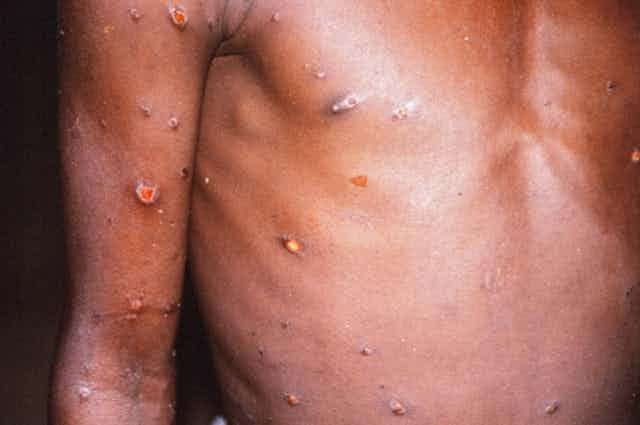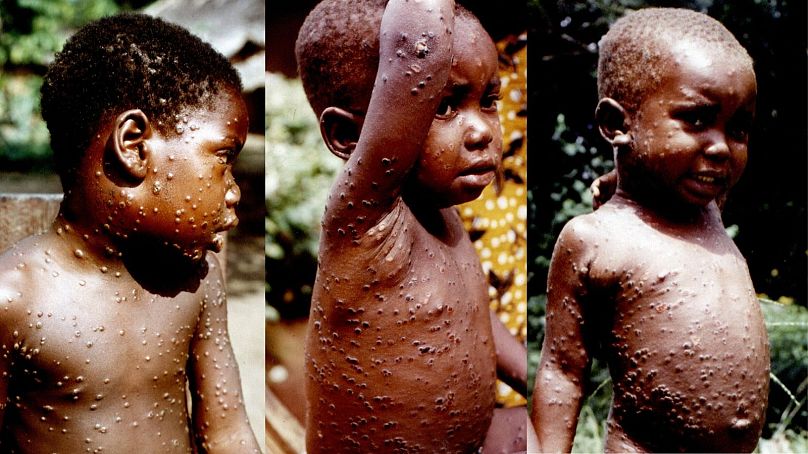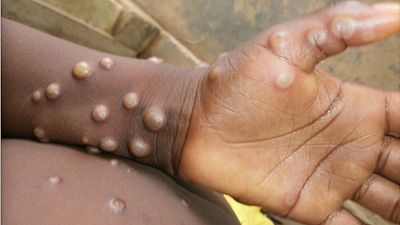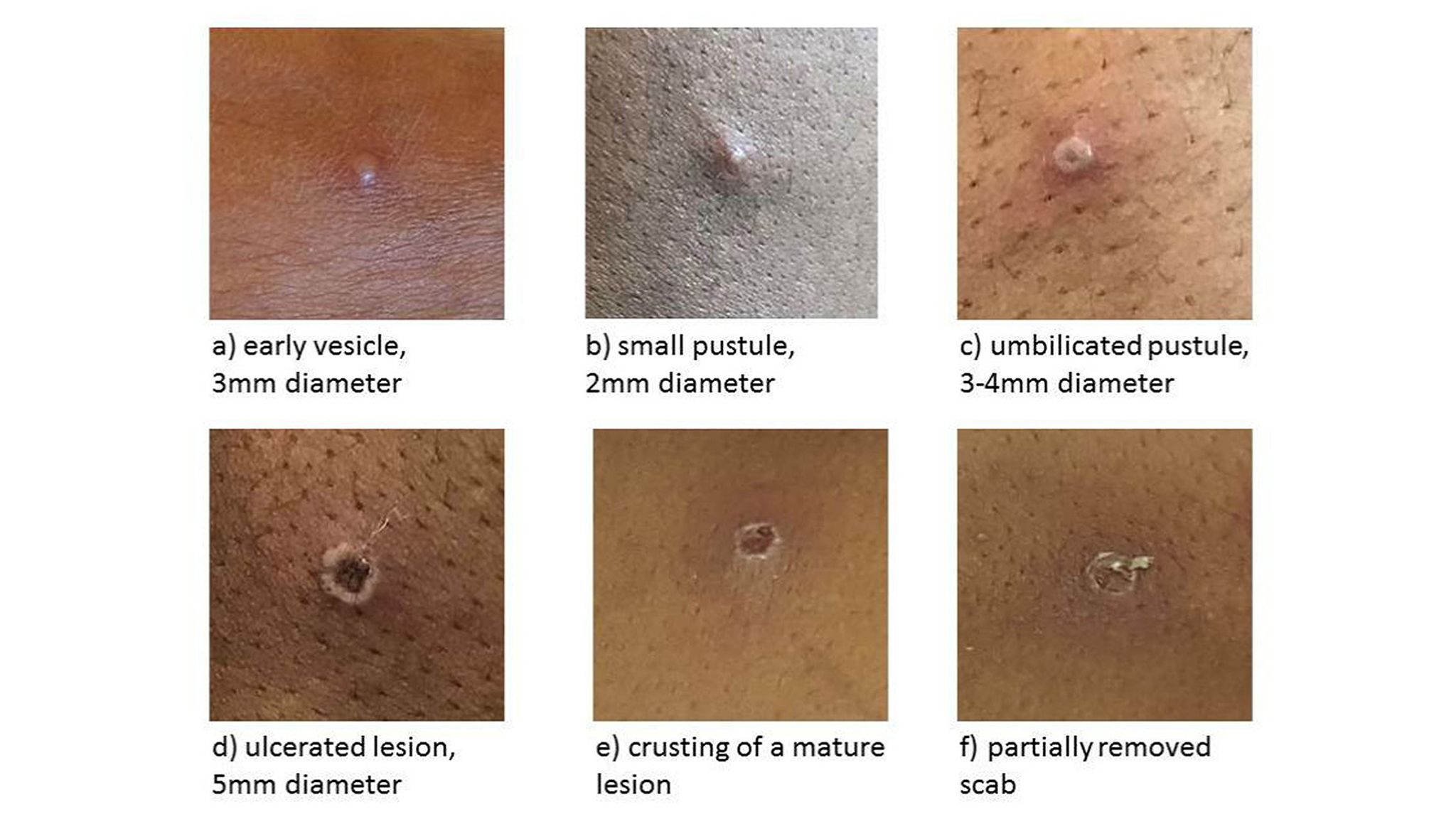Monkeypox
How you get monkeypox Monkeypox can be caught from infected wild animals in parts of west and central Africa. Monkeypox typically starts with flu-like symptoms such as fever headache muscle aches and exhaustion.
Medics have urged people to be on.

. There are two main strains. Monkeypox is a rare viral infection that does not spread easily between people. Patients may develop a rash on their face or other parts of the body.
Monkeypox is a viral zoonosis a virus transmitted to humans from animals with symptoms similar to those seen in the past in smallpox patients although it is clinically less. According to the UK Health Security Agency UKHSA monkeypox is a viral infection and is. According to the Centres for Disease Control and Prevention monkeypox was first detected in 1958 when there were two outbreaks of a disease in monkeys kept for research.
Cases usually small clusters or isolated infections are sometimes diagnosed in other countries including the UK. Monkeypox is a disease caused by a virus that as the name suggests usually spreads among monkeys in Central and West Africa but occasionally jumps to people causing small. Monkeypox is related to smallpox with similar symptoms but with a more severe rash.
There are two strains of monkeypox. Monkeypox is an infectious disease caused by the monkeypox virus MPXV that can occur in certain animals including humans. Its thought to be spread by rodents such as rats mice and squirrels.
Generally occurring in remote parts of central and West Africa the. Monkeypox virus belongs to the Orthopoxvirus genus in the family PoxviridaeThe. Monkeypox is a DNA viral illness that causes fever and a distinctive bumpy rash.
It is usually a mild self-limiting illness and most people recover within a few weeks. But there are currently outbreaks in Britain Portugal and parts of Europe. If you get infected with monkeypox it usually takes between five and 21 days for the first symptoms to appear.
It can also cause headaches muscle aches swollen lymph nodes and fatigue. Monkeypox is a rare infection mainly spread by wild animals in parts of west or central Africa. Monkeypox is most common in remote parts of Central and West Africa.
The risk of catching it in the UK is very low. Monkeypox is caused by the monkeypox virus a member of the same family of viruses as smallpox although it is much less severe and experts say chances of infection are. Monkeypox is a rare disease that is caused by infection with monkeypox virus.
Monkeypox is a viral infection typically found in central and western Africa. A Central African strain with a fatality rate of 106 and a West African strain with a much lower mortality rate of between 1-to-36. Monkeypox is a usually mild virus that causes a fever as well as a distinctive bumpy rash.
Cases of the disease outside of the region are often linked to travel to the area. The symptoms of monkeypox in humans can be similar to the symptoms of smallpox but the main difference is that monkeypox causes lymph nodes to swell the CDC. Patients usually start with a fever sore muscles swollen lymph nodes and headaches.
There has been an outbreak of monkeypox with nine cases confirmed in the UK. Monkeypox was first discovered in 1958 when two outbreaks of a pox-like disease occurred in colonies of monkeys kept for research hence the name monkeypox The first human case of. Monkeypox is a rare viral.
Symptoms begin with fever headache muscle pains. Monkeypox is a rare disease with most cases being found in Africa. Symptoms include fever headache muscle aches backache swollen.
Monkeypox is a rare disease caused by the monkeypox virus part of the same family as smallpox though typically less severe. The Congo strain which is more severe with up to 10.

Monkeypox What We Know About The Smallpox Like Virus Spreading In Europe The Us And Canada Euronews

Spain Portugal Detect Over 40 Suspected Cases Of Rare Monkeypox Disease

Monkeypox What We Know About The Smallpox Like Virus Spreading In Europe The Us And Canada Euronews

Monkeypox Cases Of Dangerous Monkeypox Are Coming To The Fore Know Its Symptoms Prevention And Treatment Edules





Comments
Post a Comment